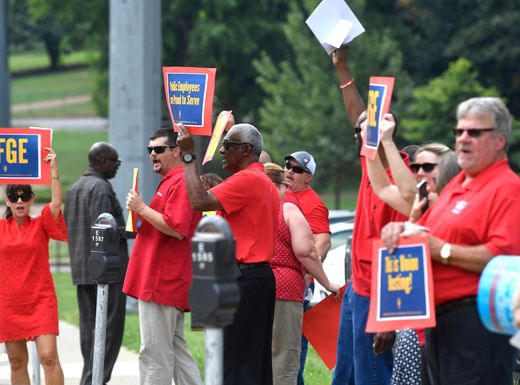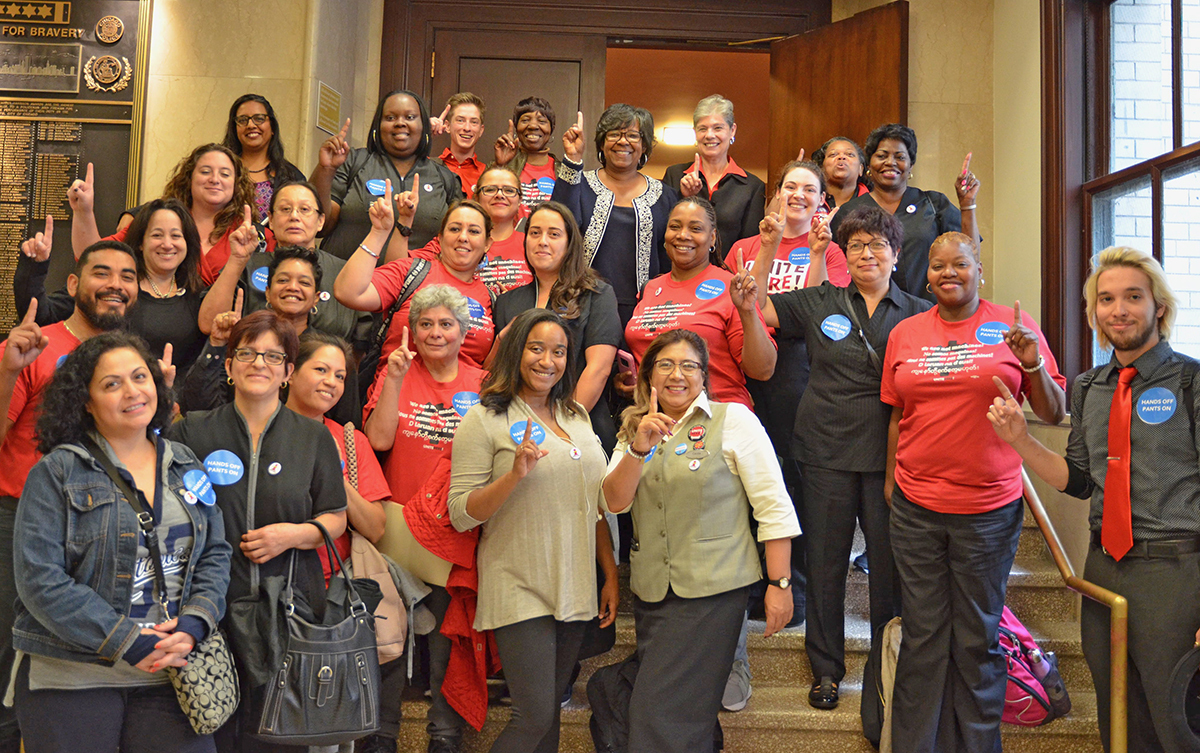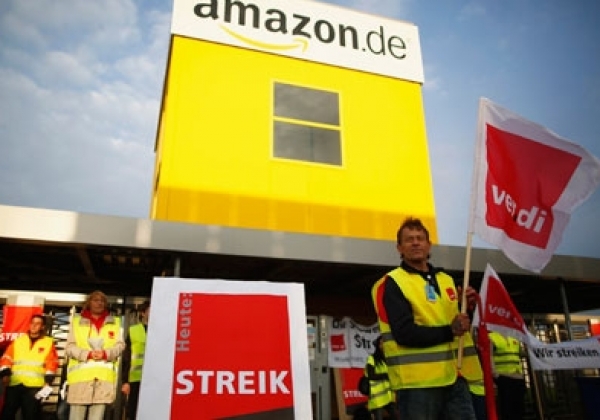
Protesters in cities across Tennessee wore “Red for Fed” on Wednesday [July 25] to rally against the Trump’s administration’s move to restrict the amount of time federal employees on the job can spend on union activity.
The demonstrations joined a movement of planned rallies across the nation, led by the largest federal employee union. The protests coincided with a hearing in Washington D.C. District Court for a lawsuit that the American Federation of Government Employees led against the White House over the matter.
“What do we do when they attack us? Fight back!” a group of nearly 40 people outside the Nashville VA chanted in the peak of the afternoon. Trump signed a trio of executive orders in May that prohibit federal employees from spending more than a quarter of their total paid “official time” conducting union business. Demonstrations took place in Nashville, Fort Campbell, Clarksville, Knoxville and Chattanooga on Wednesday afternoon. In Nashville, many worked during the time of the rally to serve veterans inside the hospital.
They only came out to join in during their personal time when they took lunch breaks. “AFGE standing up for you and me,” the group chanted. “Trump’s orders impede on our collective bargaining rights and fair and balance merit principals,” said Lisa Hartman, vice president of AFGE Local 2400 in Nashville.
Excerpted from an article by Yihyun Jeong in the Clarksville Leaf-Chronicle



